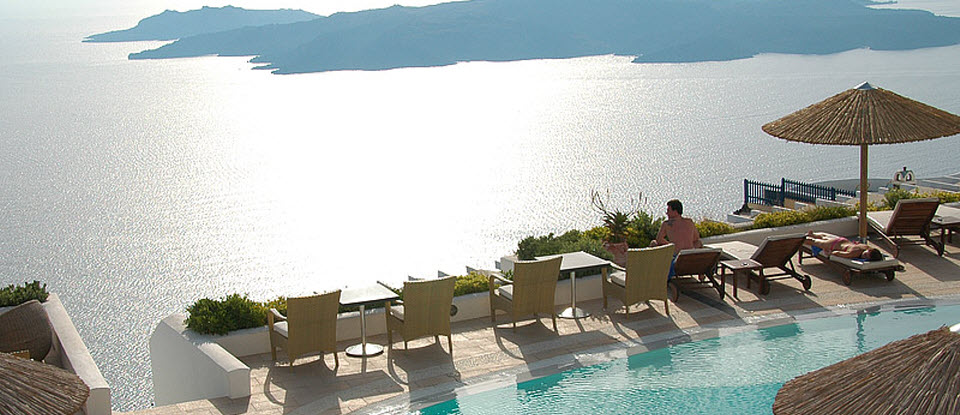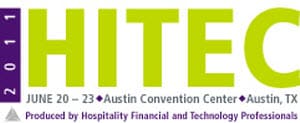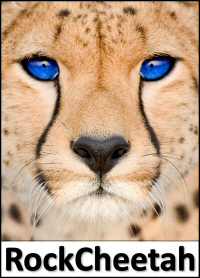When it comes to moderating a panel, there is no greater pleasure than having a group of outstanding panelists to simplify the task at hand. This is particularly true when the event is promoted as a “Super Session”, there are 90 minutes to fill, and it immediately precedes happy hour…
For the Hospitality Financial and Technology Professionals 2011 HITEC Conference, held June 20-23 in Austin, Texas, I was charged with leading one of only two educational session held on the second day of the conference.
The topic of the Super Session was Seven Travel Planning Steps and Their Impact on Hotel Distribution Strategy. It was also decided to take a highly non-traditional approach to the subject.
Contrary to most distribution panels, the discussion would not focus on Global Distribution Systems (GDS), Online Travel Agencies (OTAs), private sale websites, group buying, XML interfaces, the merchant model, search engine optimization (SEO), or mobile web versus native apps.
The presentation was built on the premise that distribution isn’t technology, it’s really about delivering the right product in the right place at the right time through the right channel at the right price for the right guest.
To illustrate the complexity facing hoteliers desiring to properly align that series of traveler “rights” to appropriately engage guests in relevant conversations, the following dimensions were highlighted:
- Seven Stages of Travel
- Inspiration
- Research
- Planning
- Validation
- Booking
- Travel
- Sharing
- Six Hospitality Touch Points
- Pre-Stay
- Arrival
- On-Property
- In-Destination
- Departure
- Post-Stay
- Multiple Traveler Personas
- Considerable Variation by Traveler
Engaging with a specific guest seeking inspiration for a romantic weekend getaway with a spouse is dramatically different than engaging the same guest who is in-destination, but offsite from the hotel during a family vacation. Under both scenarios, the individual is intensely motivated to create an unforgettable leisure travel experience, but the context is completely different. Unique opportunities for transactions also exist at each touch point.
Compounding the problem most travel suppliers confuse points/recognition programs with loyalty. This is a disturbing misconception. Points programs are games. While consumers derive value from these programs, that does not necessarily translate into loyalty. Travelers may quickly change allegiance if a competitor launches a richer program.
Loyalty sustains customer relationships through both good times and bad. Loyal consumers recognize an emotional bond with the product, a commonality of sensibilities or personalities. For service industries, this most often relates to the core values a brand exemplifies.
There is a big difference between brand value and brand values. Value drives transactions. Values drive loyalty.
Given these complexities and relational nuances, it becomes obvious that when it comes to websites, one size does not fit all.
To illustrate the point, a comparison of six hotel homepages for major upscale hotel brands was presented.
Unfortunately, all six websites were so depressingly indistinguishable (compounded by the fact that a frequent guest number provides little to no assistance in discerning traveler intent) in each case, there was negligible probability that website distribution was being effectively leveraged by hotels to create meaningful connections with their customers.
The good news was that the outstanding panel of speakers provided countless examples of how their companies successfully differentiated themselves from the competition, introduce guests to rewarding experiences and help earn consumer loyalty. For each stage highlighted, these organizations not only proactively solved problems faced by the guest, but in many cases, managed to monetize the value created.
Speaker Lineup:
Robert Cole (yours truly) – Founder, RockCheetah (Moderator/Inspiration)
Alan Glenin – Corporate Director of Revenue Management, Great Wolf Resorts (Research)
Ran Weerasuriya – Director of Revenue Management, Mammoth Mountain Ski Area (Planning)
Thomas Patchin – Senior Vice President of Interactive Marketing, Station Casinos (Validation)
Kurien Jacob – Senior Vice President of Revenue and Distribution, Highgate Hotels (Booking)
Loren Gray – Director of e-Commerce, Ocean Properties (Travel)
Tanya Pratt – Executive Director Customer Information Systems, Fairmont Raffles Hotels International (Sharing)
Below is a copy of the presentation. It may be downloaded by selecting the View on Slideshare link.
In summary, the goal is clear: Delivering memorable travel experiences by creating guest value that is consistent with brand values:
- Designing the End-to-End Guest Experience
- Engaging the Customer
Knowing Your Customer & Personalizing
Knowing Your Competition & Differentiating
Knowing Your Product & Customizing
Creating the Experience & Tailoring Scenarios
Understanding Each Phase & Providing Solutions
Focusing on Guest Touch Points & Creating Value
Driving Revenues & Earning Margins & Monetizing Engagement
Overall, the 2011 HFTP HITEC was a great success, measured by the number of attendees (over 4,700), the breadth of products exhibited, and the high quality of the educational sessions. Many thanks to Conference Chairs Cindy Estis Green and Allison Morris.
Please let me know if there is a topic that would be well suited for a HITEC session next year. Drop me a tweet at @RobertKCole, a note on my RockCheetah Facebook page, or a comment here. I would be happy to consider it for a session proposal at 2012’s HITEC. By the way, next year’s HITEC will be held June 25-28 at the Baltimore Convention Center in Baltimore, Maryland. I hope to see you there.
Below is the Morgans Hotel Group video of hotel designer Marcel Wanders on his inspiration for Miami’s Mondrian South Beach included in the presentation.
Marcel Wanders: On Inspiration:
If the video is not embedded above, please watch it on the MorgansHotels YouTube Channnel.
Spoiler Alert
For those playing along at home, the answers for the presentation’s quiz matching the Baltimore Inner Harbor hotels to the correct hotel brand are listed below:
- Wyndham
- Hilton
- Hyatt
- Radisson
- Sheraton
- Marriott










